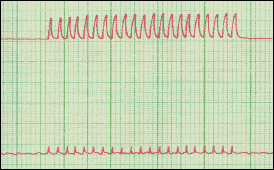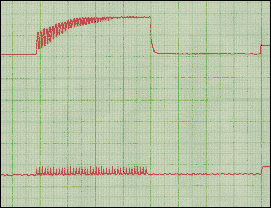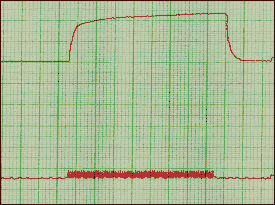Southern Oregon Video Enterprises, Inc.
The Series...
Four of the most popular laboratory exercises are now available dealing with...
- bullet Frog Skeletal Muscle
- bullet The Cardiac Cycle of the Turtle
- bullet The Human Electrocardiogram,Pulse Wave and Phonocardiogram
- bullet The Nerve Impulse, part I Background, part II Experimental
These Programs include varying amounts of background information necessary for an understanding of the physiological principles involved.
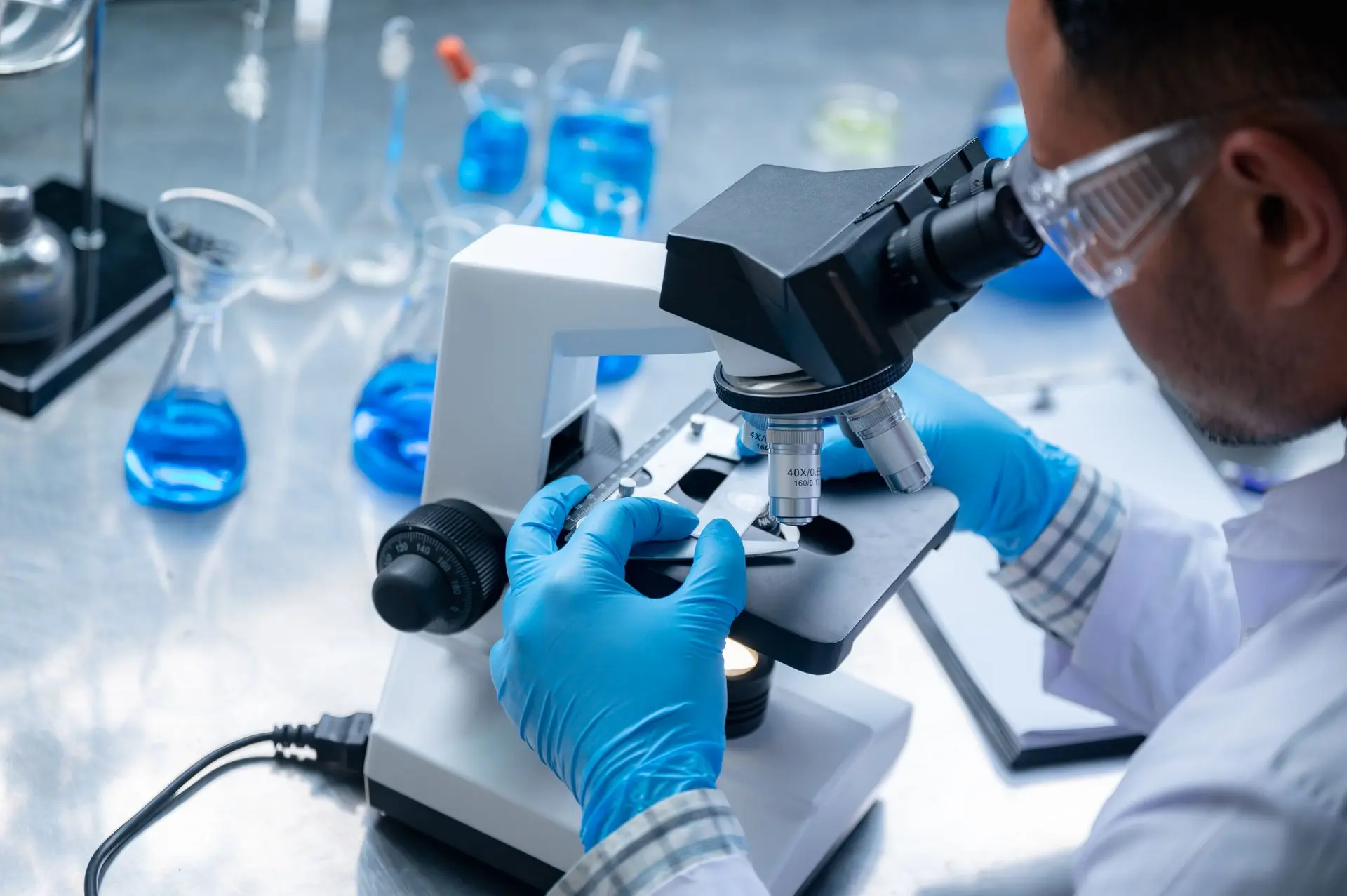
Contents of Frog Skeletal Muscle
| Background | |
| Determination of Threshold | |
| Twitch Amplitude and Duration | |
| Summation, Tetanus and Fatigue |
Details of Frog Skeletal Muscle
This program deals with the characteristics of whole muscle contraction. The tape begins with a consideration of the terms tension and load. Following an introduction to these terms, differences between isotonic and isometric recordings are presented. The equipment used to study isometric contractions is demonstrated.
The dissection of the muscle-femur preparation is illustrated via a series of diagrams. The actual apparatus for recording muscle contractions is presented. This equipment includes a Tektronix model 5113 dual beam, dual trace storage oscilloscope, a Grass model S-44 stimulator and a model FT .03 transducer. Calibration of the transducer is demonstrated .
With the foregoing serving as background information, the tape introduces the muscle twitch. Following this introduction to twitch contraction, the tape considers the determination of threshold, twitch amplitude and duration. Next, the tape concludes with a series of demonstrations of treppe, incomplete tetanus, complete tetanus and ultimately fatigue. Two channels of information are available on this tape. At selected points in the presentation a data readout of both the stimulus and the response is provided.
More DetailsContents of Frog Skeletal Muscle
bullet Background
bullet Determination of Threshold
bullet Twitch Amplitude and Duration
bullet Summation, Tetanus and Fatigue
Details of Frog Skeletal Muscle
This program deals with the characteristics of whole muscle contraction. The tape begins with a consideration of the terms tension and load. Following an introduction to these terms, differences between isotonic and isometric recordings are presented. The equipment used to study isometric contractions is demonstrated.
The dissection of the muscle-femur preparation is illustrated via a series of diagrams. The actual apparatus for recording muscle contractions is presented. This equipment includes a Tektronix model 5113 dual beam, dual trace storage oscilloscope, a Grass model S-44 stimulator and a model FT .03 transducer. Calibration of the transducer is demonstrated .
With the foregoing serving as background information, the tape introduces the muscle twitch. Following this introduction to twitch contraction, the tape considers the determination of threshold, twitch amplitude and duration. Next, the tape concludes with a series of demonstrations of treppe, incomplete tetanus, complete tetanus and ultimately fatigue. Two channels of information are available on this tape. At selected points in the presentation a data readout of both the stimulus and the response is provided.
More DetailsOrdering Information
bullet P-1021 Frog Skeletal Muscle (29 min.)
bullet P-1022 Cardiac Cycle of the Turtle (30 min.)
bullet P-1023 Human ECG, etc. (28 min.)
bullet P-1024 The Nerve Impulse Pt. I (No data, 20 min.)
bullet P-1025 The Nerve Impulse Pt. II (29 min.)
bullet P-1026 Series Price (5 tapes)
bullet P-1027 Preview Cassette (20 min.)
bullet D-1040 Decoder Unit $995
All orders must be accompanied by either bonafide purchase orders or checks payable to:
Southern Oregon Video Enterprises, Inc.
Allow 4-6 weeks for delivery.
Preview cassette
The preview cassette contains two to four minute excerpts from each of the four video programs together with data. Each segment has been chosen to represent one particular aspect of each video program. These include background information, preparation of the animal, equipment to be used and experimental data respectively.
If a program is purchased within thirty days the price of the preview cassette will be credited towards the program purchase price providing the cassette is returned undamaged in a re-salable condition at the time the order is received.
All prices are subject to change without notice.
The programs are protected by copyright.
Decoder
When the video programs are used in conjunction with the decoder unit, a data readout of the physiological signals is obtained automatically. The signals may be recorded on most user supplied three channel oscillographic recorders including the Harvard 350 recording modules. The output voltage of the data from the decoder is set at approximately 500 mv. This may be altered upon request to meet individual requirements (Inquire).
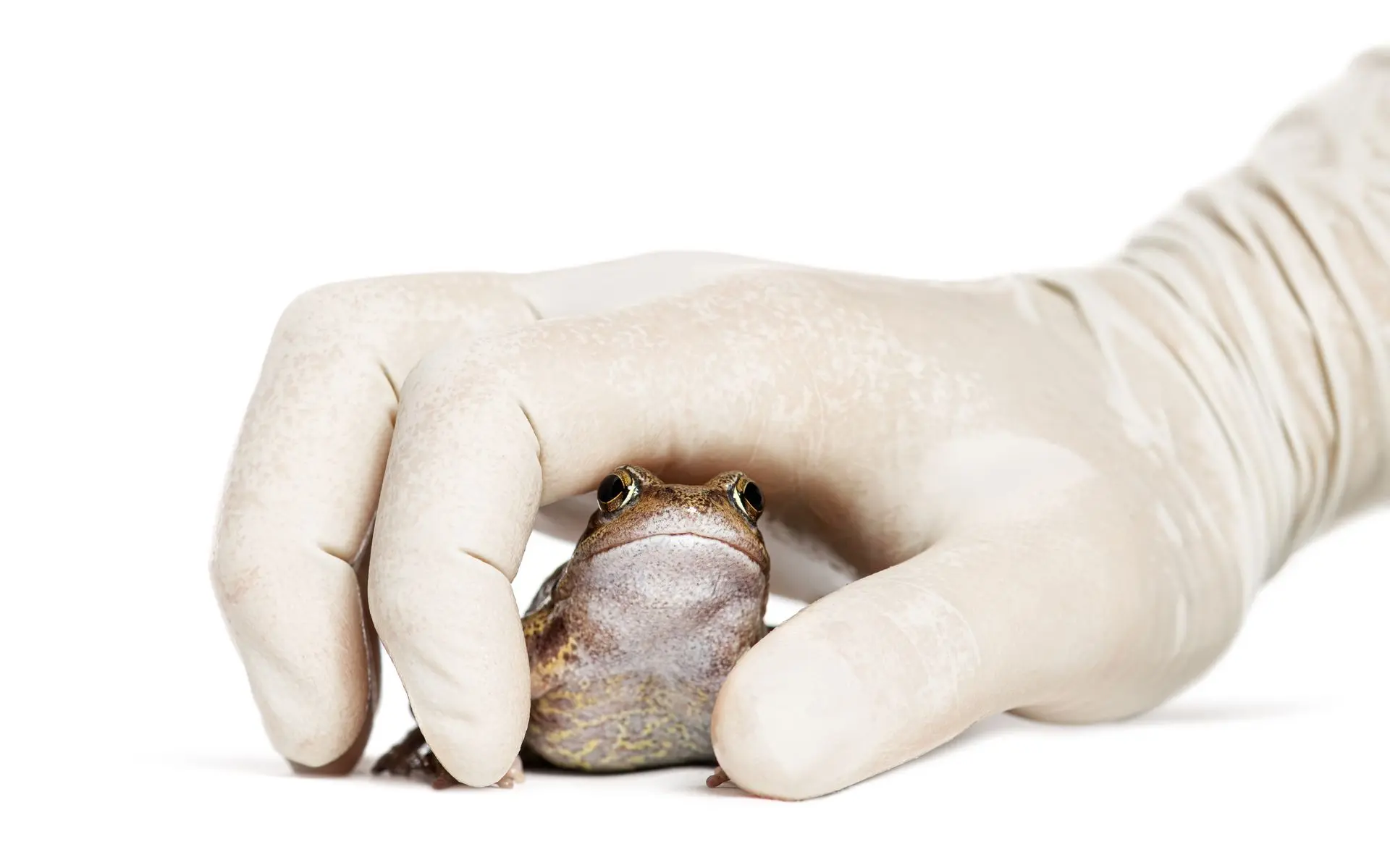
Contents of the Cardiac Cycle of the Turtle
| |
| |
| |
| |
| |
|
Details of the Cardiac Cycle of the Turtle
The second program deals with the events of the cardiac cycle and the intrinsic and extrinsic factors that control it. The tape begins by comparing the human heart to that of a turtle with respect to the origin of the pacemaking impulse and the rhythmic activity of pacemaker cells. Gross differences in the structure of the human and turtle heart are discussed.
The next segment of the tape demonstrates the turtle heart preparation itself and shows the external anatomy of the turtle heart. The tape demonstrates the attachment of transducers to record the atrial and ventricular myograms. The equipment utilized in the recording of the experimental variables is discussed and includes a Tektronix model 5113 dual beam, dual trace storage oscilloscope, two Harvard model 357 heart muscle transducers and a Grass model S-44 stimulator. The nature and time course of a myogram are discussed and the atrial and ventricular myograms are displayed on the storage scope.
The third segment of the tape examines the effects of temperature on heart rate followed by a demonstration of Starling's Law of the heart. The nature of the refractory period of cardiac muscle is explored by stimulation at different times during the cardiac cycle. The terms extra systole and compensatory pause are discussed and correlations are made with Starling's Law. Correlations between the physical and electrical events of the cardiac cycle are demonstrated next by simultaneous recordings of the atrial and ventricular myograms and of the electrocardiogram.
The tape illustrates the dissection of the vagus nerve preparatory to vagal nerve stimulation. The tape concludes by presenting the effects of vagal stimulation on heart rate. Inhibition followed by ventricular escape is shown. A data readout of the physiological information accompanies each of the sections and involves two or three channels of data.
More DetailsContents of Nerve Impulse Part I
| Origen of Electrical Potentials | |
| Diphasic Action Potentials | |
| Dissection of the Frog Sciatic Nerve |
Details of Nerve Impulse Part I
This video program deals with extracellular recording of the compound action potential in the frog sciatic nerve preparation. Part I of the tape provides background information for an understanding of the experimental information provided in Part ll.
Part one of this video program begins with a consideration of the general structure of a nerve cell. The tape then introduces the terms polarization, depolarization and repolarization and discusses the origin of the resting membrane potential and action potential. This is followed by a discussion of the recording of the diphasic compound action potential from the bullfrog sciatic nerve.
Part one concludes with a demonstration of the dissection and excision of the sciatic nerve from the bullfrog.
